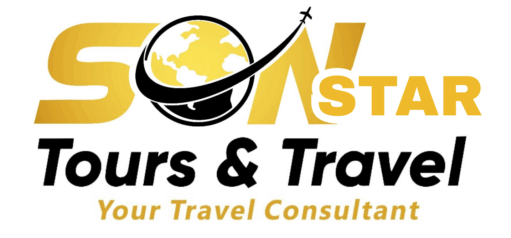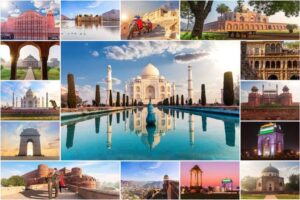
The travel and tourism industry is dynamic, fast-paced, and requires a diverse set of skills to succeed. Whether you’re working in hospitality, tour operations, travel consulting, or event planning, mastering key competencies can help you thrive in this exciting field. In this article, we’ll explore the essential skills needed for a successful career in tourism.
1. Customer Service Skills
Providing exceptional customer service is the foundation of success in tourism. Professionals must ensure that travelers have a seamless and enjoyable experience.
Key Aspects
- Active Listening – Understanding customer needs and preferences.
- Problem-Solving – Addressing complaints and resolving issues efficiently.
- Empathy & Patience – Handling diverse clients with professionalism.
According to CareerAddict, customer service is one of the most critical skills in hospitality, as it directly impacts guest satisfaction and business success.
2. Communication & Language Skills
Tourism professionals interact with people from different cultures and backgrounds, making effective communication essential.
Key Aspects
- Multilingual Abilities – Speaking multiple languages enhances job prospects.
- Clear & Concise Communication – Ensuring travelers understand instructions.
- Public Speaking – Leading tours, presentations, and group activities.
Strong communication skills help professionals build rapport with clients, negotiate deals, and provide clear travel guidance.
3. Organizational & Time Management Skills
Managing itineraries, bookings, and schedules requires excellent organizational abilities.
Key Aspects
- Multitasking – Handling multiple clients and tasks simultaneously.
- Attention to Detail – Ensuring accuracy in reservations and travel plans.
- Deadline Management – Meeting tight schedules for flights, tours, and events.
According to Travel Learning Hub, organizational skills are crucial for travel managers who coordinate complex logistics.
4. Cultural Awareness & Adaptability
Tourism professionals must respect and understand different cultures to provide meaningful experiences.
Key Aspects
- Cross-Cultural Sensitivity – Avoiding misunderstandings and respecting traditions.
- Adaptability – Adjusting to different environments and client expectations.
- Global Knowledge – Staying informed about international travel trends.
Cultural awareness enhances customer satisfaction and fosters positive interactions.
5. Sales & Marketing Skills
Selling travel packages, promoting destinations, and attracting clients require strong marketing abilities.
Key Aspects
- Persuasive Selling – Convincing clients to book tours and services.
- Digital Marketing – Utilizing social media and online platforms.
- Branding & Promotion – Creating appealing travel experiences.
Marketing skills help professionals increase bookings and grow tourism businesses.
6. Problem-Solving & Crisis Management
Unexpected travel disruptions require quick thinking and effective solutions.
Key Aspects
- Handling Emergencies – Managing flight cancellations, lost luggage, and medical issues.
- Conflict Resolution – Addressing disputes between clients or service providers.
- Decision-Making Under Pressure – Making fast, informed choices.
Problem-solving skills ensure smooth travel experiences and customer satisfaction.
7. Leadership & Teamwork
Tourism professionals often work in teams or manage staff, making leadership skills essential.
Key Aspects
- Team Collaboration – Coordinating with guides, hotel staff, and travel agents.
- Decision-Making – Leading tours and managing operations.
- Motivational Leadership – Inspiring teams to deliver excellent service.
Strong leadership fosters efficient teamwork and enhances service quality.
8. Technology & Digital Skills
The tourism industry relies on online booking systems, travel apps, and digital marketing.
Key Aspects
- Using Booking Platforms – Managing reservations through Expedia, Booking.com, etc.
- Social Media Engagement – Promoting destinations via Instagram, Facebook, and TikTok.
- Data Analysis – Understanding travel trends and customer preferences.
Technology skills help professionals stay competitive in the evolving tourism landscape.
9. Financial Management & Budgeting
Understanding pricing, budgeting, and financial planning is crucial for tourism professionals.
Key Aspects
- Cost Control – Managing expenses for tours and accommodations.
- Revenue Optimization – Maximizing profits through strategic pricing.
- Financial Planning – Ensuring sustainable business growth.
Financial literacy helps tourism businesses remain profitable and efficient.
10. Creativity & Innovation
Tourism professionals must design unique experiences to attract travelers.
Key Aspects
- Developing Unique Tour Packages – Creating customized itineraries.
- Event Planning & Theming – Organizing themed travel experiences.
- Problem-Solving with Creativity – Finding innovative solutions for travel challenges.
Creativity enhances customer engagement and sets businesses apart.
Final Thoughts
A successful career in tourism requires a blend of technical expertise, interpersonal skills, and adaptability. Whether you’re working in hospitality, travel consulting, or tour operations, mastering these skills will help you thrive in the industry.
Would you like recommendations for tourism training programs or job opportunities? 😊




